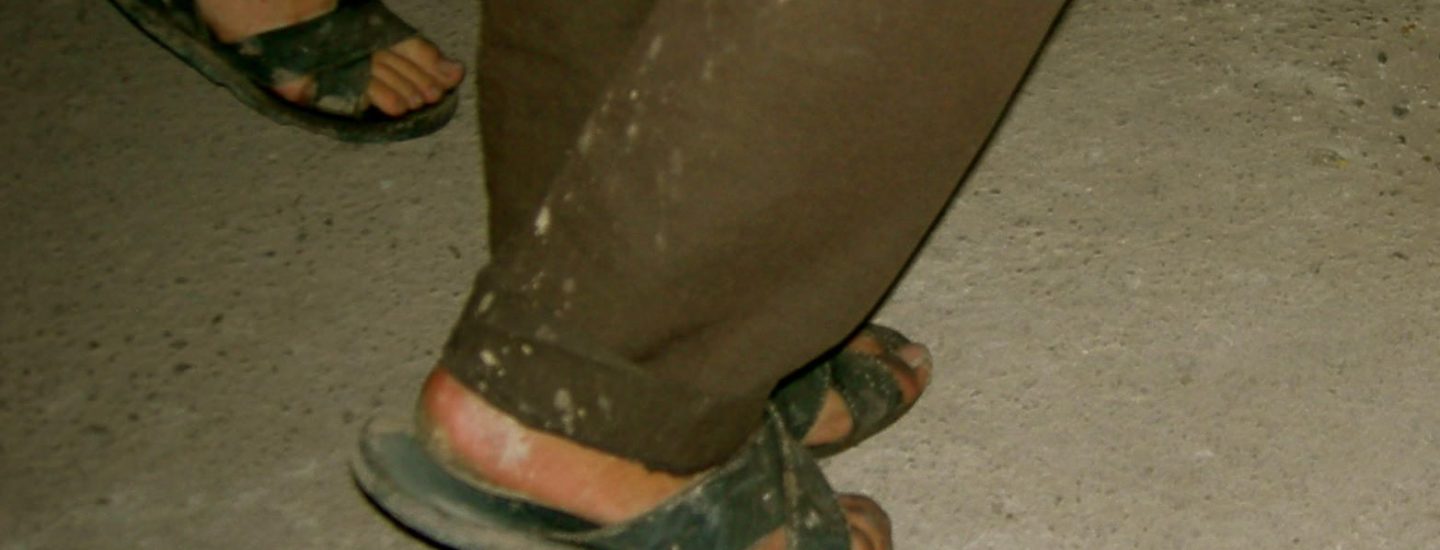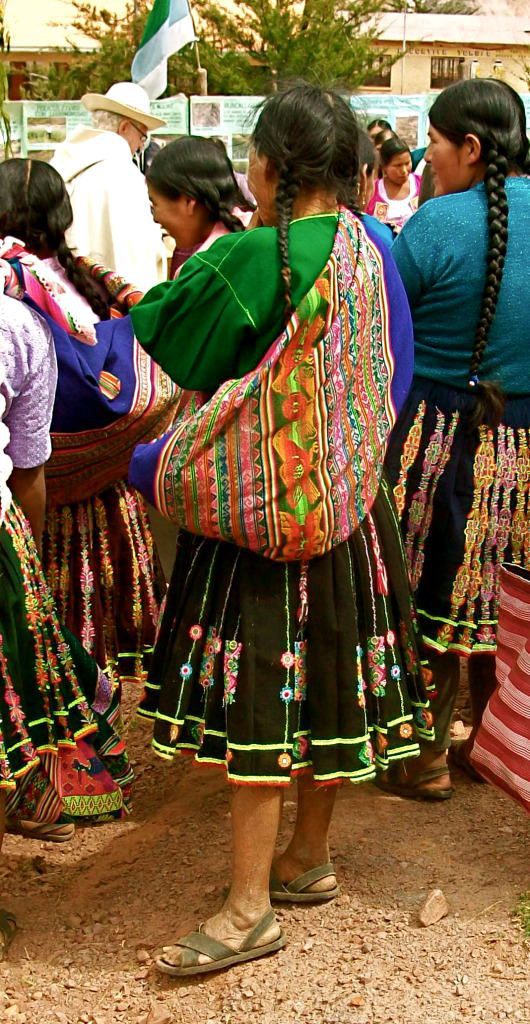Making a Fashion Statement

Editor’s Note: The following is part of our daily holiday series celebrating “The Shared World.”
On a recent weekday afternoon, I was reviewing my Quechua homework while waiting to process some of my immigration paperwork in the local immigration office. Quechua is one of the two most widely spoken indigenous languages in Bolivia and is commonly spoken in the communities where I work.
A few months ago I started a basic Quechua course and now, little by little, understand more of this beautiful language. So my ears tuned in quickly when I heard two older men, both speaking in Quechua, enter the hallway where I was sitting.
They sat down next to me in the line of chairs in the hallway. Slowly they stopped talking to one another and started staring at me.
I quickly noticed them staring at my feet.
I timidly looked up from my notebook and we caught eyes. The one sitting closest to me said in Spanish, “You are wearing abarcas,” which sounded just as much like a question as a statement.
I was, in fact, wearing abarcas, which are sandals made out of recycled car tires. I bought the pair I have because I needed them to be able to participate in one of the native dances with Bolivian friends of mine here in Cochabamba. But I started wearing them regularly when my Chaco sandals broke.
“I work in a vegetable garden, so abarcas serve me really well,” I responded to him in Spanish.
Abarcas are incredibly durable and have been a great fit for my work. They also have a strong association with campesinos and I know that the discrimination towards campesinos as being inferior extends to abarcas, as if wearing abarcas makes a person inferior.
He nodded in agreement and said, “They are great for rain and all kinds of weather.” I nodded and smiled back. He also was wearing abarcas.
The two men then continued to talk to one another, but after a few minutes turned again to me.
He asked me while pointing at the man next to him, “If he was born in 1963, how old is he?”
And together we counted out how old he ought to be because he did not know. We decided together that he ought to be fifty-one years old.
I was a bit astonished by the conversation. I’d never met someone who didn’t know how old they were. But I was even more impressed by how unashamed he was to ask me to help him figure it out. My own prejudices had told me that knowing one’s age in years is really important and I imagined that I would be embarrassed to ask anyone to tell me how old I was.
I told my Bolivian co-worker the next day about my conversation with the two men and she gently responded to me, “You know he felt comfortable talking with you because you were wearing abarcas, right?”
I knew she was right.
Many people would not even consider wearing abarcas because of the social discrimination attached to them, particularly in urban areas. So the mere fact that I was wearing abarcas established a connection between us.
And I just felt so grateful, that a simple shoe choice could bring us together to one shared world, could make me approachable and break through a social order that would usually keep us worlds apart.
[button type=”small” color=red url=”/sharedworld/”]Share Christ’s Peace this Christmas: Give a Gift to FMS[/button]
[button type=”small” color=grey url=”/tag/the-shared-world/”]Read more stories of “The Shared World”[/button]
Tagged in:

